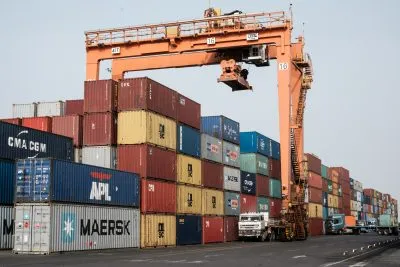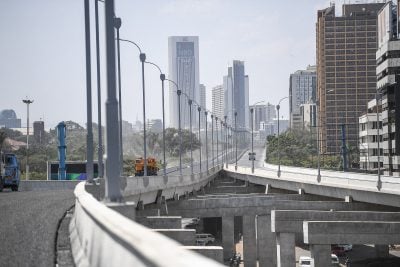Sound management key to gaining investor interest
Karim Awad, the Group CEO of EFG Hermes, Egypt’s largest investment bank is one of Africa’s most accomplished financiers. He has significantly expanded the bank’s activities since he took up the helm of the firm in 2013; the bank posted record profits last year.
EFG Hermes very active in Egypt and also in the Middle East, has overseen some of the region’s largest IPOs, rights issues and debt raising for its clients across multiple jurisdictions.
In 2015, the bank also advised Al Futtaim group, the UAE’s biggest car dealer, in the acquisition of Kenya’s CMC group. This year EFG Hermes opened an office in Parkistan and has also expanded outside traditional IB activities, adding leasing and micro-finance to what it also does. African Banker spoke to Karim Awad about opportunities across frontier markets, recent reforms in Egypt and managing risk in volatile markets.
When speaking to clients, how do you present frontier markets you operate in, in terms of risk and opportunity?
Between 2000 and 2013 we establish a really strong position in the MENA markets, in Egypt and effectively most of the GCC countries. This allowed us to establish a very strong client base, from which we felt we comfortable enough to take our operation to frontier markets.
Markets in general, not just frontier ones, are tricky these days. However, they do represent a lot of opportunities for investors to step into as they are, effectively, largely virgin territories.
If you take a market like Pakistan – or a market that we have just obtained the licence for, Kenya – these are all markets that have been on the radar screens of the investors that we deal with.
These could be sell-side investors, or funds that we deal with in the West, or Gulf investors that have been looking to expand their businesses in areas that can provide them with acceptable risk, as well as growth potential.
There are risks, which we set out diligently to our clients, but in a lot of cases, because of the liquidity that some of those clients have, they have been quite responsive to those ideas.
Would you say that these frontier markets are no more risky today than they were 10 years ago?
They are facing some challenges today but so are more developed markets in the world as well. I think the risks, in general, are quite acceptable and the rewards that they carry can be quite significant.
How do you see the reforms that are taking place in Egypt and can do you see new opportunities these will create for investors?
Absolutely, as EFG Hermes, we continue to see Egypt as our key market. While we have grown quite significantly outside its borders, Egypt continues to be an important play for us.
We believe that most of the decisions that the government has taken over the past period are definitely in the right direction. They are difficult decisions, for sure, but they also show a lot of courage.
We have not really seen massive investor flows as of yet – but can be expected in a year when so many critical economic decisions have been made.
Based on the views of all the clients that we speak to, the country remains extremely attractive from a number of perspective, especially when it comes to demographics for example. And also in terms of Egypt internal market and its position as a gateway to the rest of Africa.
In Africa in general, the capital markets aren’t particularly developed. Does that mean that most of the deal making is going to be in the private markets as opposed to the public ones?
This is the situation for sub-Saharan Africa, for sure. A lot of the deal making is going to be on the private side. However, we remain quite positive that some of the larger African markets are going to see a pick-up in liquidity within the next two to three years.
So, whether it is Nigeria or Kenya, this is where EFG has key interests in our African strategy. We believe that these markets are going to make a come-back. But in the meantime, I think most of the activity is going to be largely on the private side.
You have been very active in real estate, auto as well as FCMGs. Which sectors in Egypt are you concentrating most of your interest and activity?
We continue to believe that things are being driven by the demographics and the population growth. In general, what we have seen is that investors are more focused on companies that offer good stories as well as good growth prospects – as opposed to being largely focused on a particular sector.
To give you some examples: during the first half of 2017, we oversaw an IPO in the Emirates related to a Real Estate Investment Trust (REIT); we have done a call centre in Egypt; an oil drilling company that is out of the DIFC that we listed in London. And we have done an accelerated book building for a university in Kuwait; and one for a fast-moving consumer goods company here in Egypt.
So overall, you can see that the sectors are quite different from one another but they all have one common characteristic – they are quite interesting companies and extremely well-managed.
You say that putting in place strong governance structures is extremely important ultimately in attracting investors and interest from abroad?
Absolutely. This has grown massively in importance and I think that companies that have strong management and also well structured and supportive boards always seem to get the best mix of financial investors, whether they are from the West or from the Gulf. This is the key ingredient.
What advice do you give to clients in terms of managing FX risk because this risk is very real?
I am very optimistic about Egypt going forward because that risk was quite high prior to 2016 and we saw it as a major obstacle to investment in the country, this risk is not there anymore.
If anything, most banks, including our own research house, see a gradual appreciation in the currency. While this was a risk that definitely weighed down on the investment environment in the country during 2016, and maybe even in 2015, today it’s hardly factored in.
As for other African countries, what we always advise our clients is to weigh in the overall returns they can make with the potential depreciation in currency that can come with it.
Can you tell us a little bit about Futtaim’s purchase of CMC in Kenya, since you were instrumental in that.
We’ve had a good relationship with our clients the Al-Futtaim Group in the UAE, and because of that good relationship they asked us to undertake their expansion and overall interest in Sub-Saharan Africa.
We came back with certain propositions that we thought could suit their overall growth strategy – and CMC was a prime target.
And we worked with them on the execution of the deal. That deal actually opened our eyes to the potential of selling African opportunities to our clients.
That is exactly why we established an office in Kenya to serve as a
as the hub for all of our East African business. We can play a bridging role in bringing FDI into those countries as well, which is a role that we played for a long time in Egypt and in other GCC countries.
//ENDS//
Want to continue reading? Subscribe today.
You've read all your free articles for this month! Subscribe now to enjoy full access to our content.
Digital Monthly
£8.00 / month
Receive full unlimited access to our articles, opinions, podcasts and more.
Digital Yearly
£70.00 / year
Our best value offer - save £26 and gain access to all of our digital content for an entire year!
 Sign in with Google
Sign in with Google 



